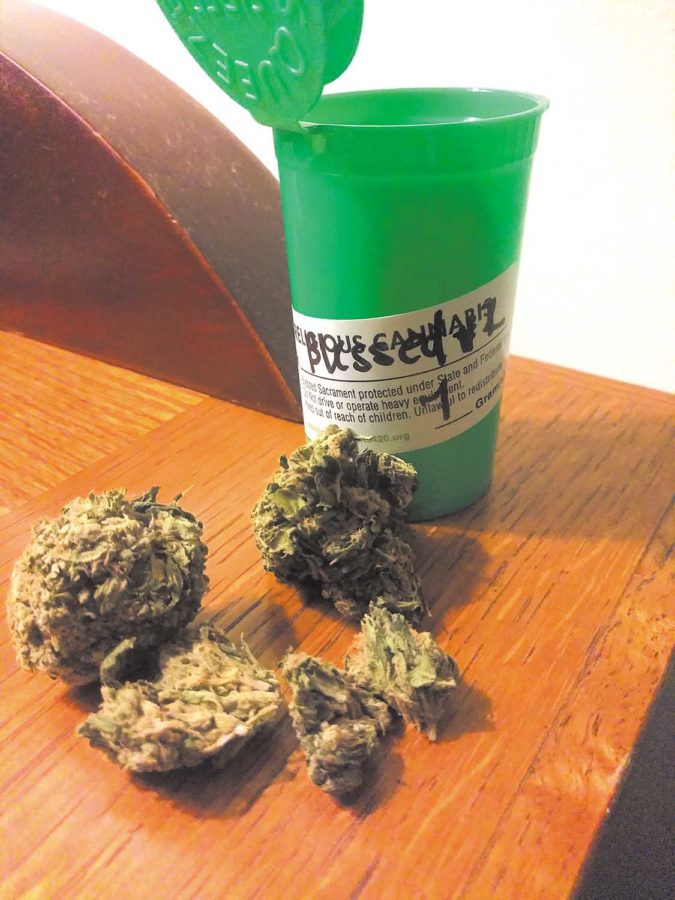by Garth Meyer
A short-handed city council Tuesday voted to further explore the permitting process for retail marijuana stores in Redondo Beach.
The vote included a directive to city staff to look into how to collect taxes on deliveries.
After the council passed an ordinance last fall to allow two retail stores, delays ensued as the city hired a consultant, who ultimately bowed out because their retail cannabis expert left the firm.
As a result, city staff will continue the process on their own, said Redondo City Manager Mike Witzansky.
Councilman Scott Behrendt made the final motion Tuesday night, supported by Paige Kaluderovic and Nils Nehrenheim. Councilmen Todd Loewenstein and Zein Obagi, Jr., were absent, as was Mayor Brand.
Consultants HDL, working with city staff earlier this year, proposed a four-phase process to get a permit to open a marijuana store.
The first step is to determine financial eligibility; the second is a review of the applicant’s business plan, including employment and security plans, scored by an assistant to the city manager. Third is interviews by a staff selection committee appointed by the city manager, which includes scores and a preliminary ranking. Next is background checks, city council interviews and a final decision.
An appeals process would be included. Fees for each of the four stages have not been decided.
“How we decide to choose people is one process, then making sure they open the stores and become successful is another process,” said Nehrenheim.
City attorney Mike Webb pointed out that the previous council chose not to base permit criteria on the applicant having leased a Redondo location already, but location is part of the score.
“How do you marry a pricing plan, a security plan to a site that doesn’t exist?” said Nehrenheim.
Councilman Behrendt said the situation “seems like a seismic shift,” in that HDL is no longer working with the city.
Witzansky reported that the consultants, who have collaborated with Redondo Beach for more than 20 years on various (sales) tax matters, could no longer staff this. He has met with them to ask if that may change.
“Candidly, I didn’t see a lot of optimism in their eyes,” he said. “… Make no mistake, we’ll find a way to get it done.”
Witzansky recommended that the city council “use a site as criterion and we update the ordinance to reflect that change.”
Behrendt asked about the likelihood of litigation, saying, “that’s going to suck up revenue right away.”
He talked about the previous council’s approval of potential stores in certain zones of the Artesia-Aviation boulevards corridor.
“I want to take a closer look to see if it’s a better idea to have no retail marijuana in the corridor,” he said.
Council Member Paige Kaluderovic asked if the city may hire another consultant. Witzansky answered that few consultants focus on cities’ points of view in retail cannabis..
“I appreciated HDL’s independence in that realm,” he said.
“How do we capitalize on delivery that’s happening in our city now?” Kaluderovic said.
Later, in public comment, an attorney and possible applicant said, “I invite de-coupling this process from real estate.”
Jonatan Cvetko, a member of the city’s cannabis steering committee and a retail marijuana license-holder elsewhere in California, said that HDL presented something out of line with the city ordinance. He called for the city to get its $50,000 back.
“Wow,” said Joan Irvine, district one resident, in support of Cvetko’s point. ”I am so disappointed, What the hell is taking so long?”
Another woman came up, identifying herself as a commercial real estate consultant.
“I haven’t seen so many attacks on government since the Republican debate,” she said. “ … A.I. could rank security plans at this point.”
Nehrenheim said that he didn’t see any more outside help coming on this issue, then made a motion for the city attorney to “harmonize” the work of HDL on permitting with the existing city ordinance.
“I think we need to go back to square one,” countered Behrendt.
He made a motion that the city attorney further review other cities’ retail marijuana ordinances – and their subsequent success or failure – and for staff to look at collecting taxes on deliveries.
Nehrenheim said he had a lot of faith and trust in HDL.
“I believe HDL has given us something we can build off of,” said Witzansky. “… These are hard choices. Somebody’s going to be unhappy. Somebody is going to sue us. Somebody is going to lose. Somebody is going to win. A landlord’s going to make a lot of money. That’s going to happen. We just got to be honest about that. There is not going to be perfect here.”
Kaluderovic asked what the council needed to change in the ordinance to line up with the application process, or vice versa.
“Should we be tweaking the ordinance or should we be tweaking the application process?” she said.
Witzansky suggested the council re-agendize the discussion for a full council, before Kaluderovic seconded Behrendt’s motion. It passed 3-0.
Last September, the city council (without Behrendt and Kaluderovic) passed the ordinance allowing two marijuana stores in Redondo. This spring, in March, voters approved Measure CT, which allows the city to collect yearly taxes from hemp and marijuana businesses at a rate of 3 to-9 percent of gross sales on cultivation, manufacturing, testing and distribution.
The city hired HDL in June 2022. The city council also discussed proposed application guidelines in May.
“This is a never-ending subject we talk about,” said Witzansky. ER










